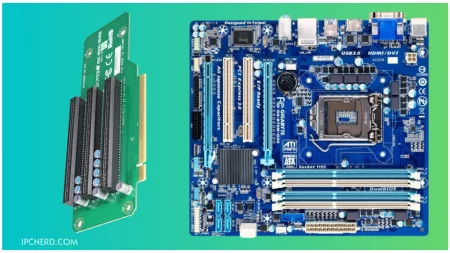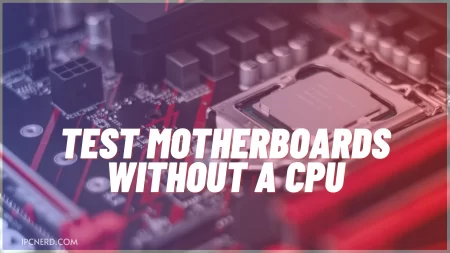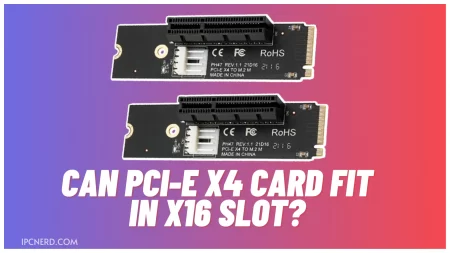One of the most important components in any computer is the CPU. When you think about it, a good cooling device is necessary to keep your computer running smoothly and efficiently. While both a CPU cooler and case fans are used to cool a CPU, they have differences you should know so you can make a sound decision.
Difference between CPU Cooler vs. Case Fans
When choosing a CPU cooler vs. a case fan, there are some key differences. A CPU cooler is designed to keep your computer’s processor cool, while a case fan is intended to move air through the system and dissipate heat.
With that in mind, here are the main differences between CPU coolers and case fans:
CPU Coolers:
- Usually larger and more obvious than case fans
- It can be mounted on the motherboard or the side of your computer
- Often use passive or active cooling technology
Case Fans:
- Usually smaller and less conspicuous than CPU coolers
- It can be placed anywhere inside your computer except near the processor(s)
- Use forced air or blower-style cooling technology
What to Look for When Buying a CPU Cooler?
When choosing a CPU cooler, there are a few key factors to consider. The first is the type of processor you have. Some coolers are specifically designed for AMD processors, while others work better with Intel processors. Secondly, you must decide whether you want a fan or an air cooler.
A fan-based cooler will require you to use either a motherboard header or an auxiliary power supply to power the fan, while an air cooler will require no additional power source. Finally, you need to decide on the size and shape of the cooler.
Coolers come in various shapes and sizes, so it’s important to find one that fits both your hardware and your needs.
What to Look for When Buying a Case Fans
When choosing a case fan, there are a few things to remember. The first is the wattage of the fan. A higher-wattage fan will move more air and be more powerful, but it will also be louder. If you’re looking for a quiet fan, use a lower-wattage model.
The second factor to consider is the airflow rating of the fan. A fan with a high airflow rating will move more air than a low one but may also be louder. If you do not plan on overclocking your PC or gaming heavily, go with a lower airflow rating fan.
The third factor to consider is the price. Some fans are cheaper than others, but they may not be as efficient or powerful. Choose a budget-friendly model if you’re just looking for an extra cooling solution for your computer case and don’t plan on using it for gaming or overclocking.
What are the Benefits of a CPU Cooler?
A CPU cooler is a device inserted into the CPU socket to cool the chip. The cooler transfers heat from the processor to the air around it and reduces the amount of heat produced by the processor. A CPU cooler also helps to keep your computer system running at its best.
There are many benefits to using a CPU cooler:
- Improved performance: A properly cooled processor will run faster and more efficiently, resulting in improved task performance and decreased laptop battery life.
- Reduced noise levels: A properly cooled processor will produce less noise than a not-cooled processor, making it easier to work in noisy environments.
- Extended motherboard life: If your computer system experiences higher-than-normal temperatures, a CPU cooler can help extend your motherboard’s and other components’ lifespan.
- Increased reliability: When used with a quality thermal interface material (TIM), a CPU cooler can help protect your computer system from overheating and other malfunctions due to excessive heat accumulation.
What are the Benefits of a Case Fan?
A case fan is a small, quiet device that helps keep your computer cool. They come in different shapes and sizes and can be used to circulate air through your computer’s case or motherboard. Fans are often considered optional upgrades, but getting one has many benefits.
The most obvious benefit is that a case fan can help keep your computer cool during peak activity periods. This means your computer will run more smoothly and cooler overall, especially when gaming or using demanding applications. In addition, a case fan can help reduce noise levels in your room or office.
Another big benefit of using a case fan is the prevention of overheating. When temperatures rise too high inside your PC, it can cause hardware damage and even lead to a system crash. A properly configured case fan can help keep your PC running at its best by reducing heat levels and preventing these types of issues from happening in the first place.
Cons of Case Fan & CPU Cooler
There are cons to both case fans and CPU coolers. However, a CPU cooler will always be a better option if you’re looking for the best cooling solution for your computer. Here are some of the cons to consider when picking between a case fan and a CPU cooler:
CONS:
- Case fans don’t typically offer as much cooling power as a CPU cooler.
- They tend to become less effective over time as the blades gradually lose their ability to spin at a fast enough rate.
Conclusion
When choosing a CPU cooler or case fan, remember a few things. Firstly, make sure the cooler you choose is compatible with your processor. Secondly, consider how much airflow you need and what type of noise you are willing to deal with. And finally, think about how often you will need to replace the fan or cooler and whether that is affordable. Hopefully, this article has helped you decide which option is best for your needs!
Frequently Asked Questions
What is the difference between a CPU cooler and a case fan?
A CPU cooler is specifically designed to keep your processor cool. It typically includes a heatsink and fan that work together to move heat away from the chip. A case fan, on the other hand, is used to circulate air in your computer case. It helps remove stale air and create a more comfortable environment for your computer components.
Which one should I choose?
The answer to this question depends on the type of computer you’re building. You’ll likely want to invest in a CPU cooler if you have a high-end gaming PC. On the other hand, if you’re building a basic home office PC, you may not need one. Ultimately, it’s best to consult with an expert or compare different models before purchasing.







